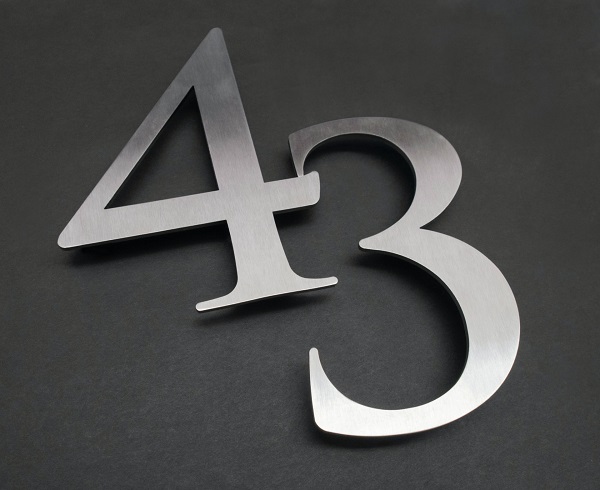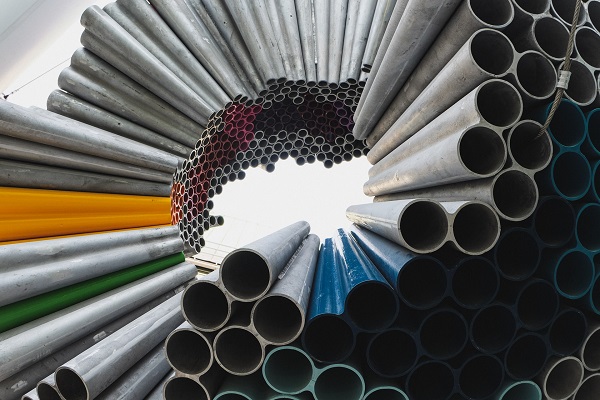Introduction
Looking to buy stainless steel coil? You’re at the right place for the guidance of your purchase.
Find more useful tips to buy stainless steel coils in this article.
Looking to buy stainless steel coil? You’re at the right place for the guidance of your purchase.
Find more useful tips to buy stainless steel coils in this article.
It’s easy to get confused when you select stainless steel coil. There are over 60 stainless steel grades and many products to choose from.
Here at WJH Stainless Steel, we will help you select the stainless steel coil that best suits your project.
In other words, you will find some guidance and solutions before deciding to buy stainless steel coil.
First of all, let’s have a look at some basic factors. You should take them into account to select a product that meets all your expectations.
If you want more recommendations, please contact our professional team. We will help you find the right product.
Here are the key factors when considering to buy stainless steel coils according to your need:
For stainless steel products, the installation environment is a key factor.
When choosing stainless steel, we mainly consider the atmospheric conditions, the concentration levels of particular chemicals, and the acid.
If the installation environment is less corrosive, an austenitic stainless steel grade for general purpose is suitable. While, for a highly acidic environment, you need to choose a stainless steel grade like 316, 904L, or 2205.
The temperature of the environment is also an important factor.
In the furnace environment(900-1175C), the high temperatures will speed up the corrosion of stainless steel.
Also, it puts extra pressure on stainless steel products.
So, if the temperature is always high, you need the well heat-resistant stainless steel, such as 321 and 253MA.
Very low temperature is another factor. Austenitic stainless steels are effective at very low temperatures.
They maintain a higher tensile strength at low temperatures than at ambient temperatures.
Despite a slight degrading of toughness, these steels work well in temperatures as low as -161°C.
Austenitic grades have a low magnetic response.
Those with higher nickel content are not magnetic under any conditions, such as the 316 or 310 grades.
And the ferritic and martensitic stainless steel grades (400 series) are highly permeable.
Moreover, duplex grades like 2101 and 2205 are also ferromagnetic.
Steel strength is an important factor to consider before you choose the grade, but it is a complex one.
Your requirements for stainless steel depending on the purpose and the installation environment.
In some cases, high strength stainless steels, like austenitic and duplex, are suitable. But in some cases, their disadvantages are also obvious and do not meet your requirements.
For example, high strength austenitic steels produced by work hardening are not suitable for welding. It makes the steels soft.
Stainless steel products come in many forms, such as sheets, bars, and tubes.
The form will affect the grade you need.
Not all grades have all product forms and sizes. Austenitic stainless steels are very versatile.
You can find products in a wide variety of forms and sizes for different purposes. Ferritic steels generally appear in sheet form. And martensitic steels are common in solid bar form.
When installing stainless steel products, there may be some special requirements.
As a result, you may need to change the grade of steel.
For example, you may want non-magnetic steel, need products that are suitable for welding or products with a high degree of forming. Or simply you just want a good-looking product.
Cost is always a factor when choosing to buy stainless steel coil.
And you need to balance it with all the other considerations. Sometimes the best technical steel is too expensive.
But please remember to assess the cost on a life cycle basis.
Do not look at the initial price only then overlook the life cycle. Stainless steel products have a long life, so a high cost for high-quality steel is reasonable.

As long as the quality is good enough, stainless steel is one of the safest materials.
But remember, the quality matters.
So, how do you know if the stainless steel coil you’ve got is good or not? Try out the below methods.
The theory of the “magnet test” is a rumour.
It tells you that you can test the quality of stainless steel with a magnet.
But the fact is that the magnet is to test whether the steel is austenitic, or whether the steel contains chromium and nickel.
There are three main types of structures in stainless steel: austenite, ferrite, and martensite.
When you see stainless steel with 18/8 or 18/10 marks, it tells you the amount of chromium and nickel.
So, both 18/8 and 18/10 are austenitic.
The “magnet test” is useful when you use it in the right way. And it’s easy to do by simply taking a magnet to your stainless steel coil.
If the magnet sticks, the coil is safe because it indicates no nickel in the steel. But if the magnet doesn’t stick, it means the steel contains nickel, so the coil is not safe for food usage.
This test is credible.
If a magnet is to stick to steel, it is not a nickel (austenitic) alloy.
There is a problem with this theory, however.
First of all, there are no stainless steel pans with magnetic inside and outside. It’s very difficult to find a fully magnetic stainless steel coil on the market.
That’s not surprising. The reason is that austenitic stainless steel which contains nickel is highly resistant to corrosion.
Corrosion resistance is very important to buy stainless steel coil, isn’t it?
If the coil is fully magnetic stainless steel, it would corrode and not last very long. Without nickel, the metal is not stable.
For this reason, it’s not necessary to buy stainless steel coils that are magnetic, nickel-free.
You will find magnetic stainless steel in the outer layer of some quality stainless steel.
It’s to make the coil compatible with induction stovetops in case you need it for cookware. The reason is, induction stovetops use an electromagnetic field to heat the cookware.
So, high-quality stainless steel cookware usually has three layers of metal. The interior is austenite stainless steel. The exterior is ferrite stainless steel. And the middle layer is aluminium.
It’s for good heat conductivity because steel itself does not conduct heat evenly. Stainless steel of poor quality usually has only one austenitic layer.
But there is still a difference in quality between different types of austenitic stainless steel.
Sometimes you will find that austenitic stainless steel is less magnetic. That’s because, during manufacturing, the steel is cold-processed to form ferrite and martensite.
This process makes it easier to corrode and leach.
The formulation of austenitic stainless steel cookware is careful to avoid this. And the result is a very stable austenitic alloy that resists corrosion and leaching of the metal.
So, A carefully-formed, highly-stable, non-corrosive, and nickel-containing stainless steel is safer than a pure magnetic stainless steel.
Pure magnetic stainless steel will break down and corrode over time. And it doesn’t even exist in the market!
To be honest, it’s hard to know whether your stainless steel is of the best quality unless you are a metal expert. Or unless you go to the factory and see how it’s made. Otherwise, you won’t know whether your stainless steel has corrosive materials.
Your best choice is to buy high-quality stainless steel from the start, choose a brand with a good reputation for quality, such as WJH premium stainless steel.
But still, there’s another way for you to determine whether the stainless steel coils you’ve got is potentially harmful.
What is all this stuff? They are the types/grades of stainless steel. No worries. We’ll tell you in detail in the following section after this.
Now let’s focus on how to make use of the tester.

Then, do the test by the following steps.
If the colour remains grey (or the original colour of the stainless steel), then it is 304 stainless.
It is 201 stainless steel or 202 stainless steel if the colour turns out to be red or reddish according to the colour chart labelled on the liquid bottle.
But keep in mind, even you’ve got the food-grade stainless steel, don’t use them for very acidic things. Like tomato-based sauces and stuff, avoid storing these foods in your stainless steel.


So, the higher performance of 316 stainless steel comes with a more expensive price.
But rather than the price itself, it’s the needs of usage of the material that matters more.
Thus, carefully consider the environment you are going to operate before buying the stainless steel coils.
That remains too hard for you to decide? No worries.
As always, get help from the professional from WJH stainless steel. We will help you select the proper material for your project with our best effort.
If you’re thinking to buy stainless steel coil of 304 and 316, you want to know their differences.
And best with the specific method to distinguish one from the other. Now, you’ll get them here.
Honestly, 304 and 316 stainless steel look very similar.
They are both non-magnetic, austenitic, and non-hardenable through heat treatment.
Also, each of 304 stainless steel and 316 stainless steel resists corrosion. And they are both quite durable, easy to form and manufacture.
However, there is a key difference in their structure. That is, the molybdenum in 316 stainless steel.
The addition of molybdenum further increases the corrosion resistance of the material.
That’s why 316 stainless remains more ideal for acidic environments than 304 stainless steel.
Moreover, the stainless steel grade 316 is more suitable for marine applications. And seawater environments as well.
Due to its greater resistance to oxidations, it’s common to see 316 stainless steel in the following situations:
Generally, 304 stainless steel is less expensive than 316 stainless steel.
And it is a great choice for kitchen applications such as appliances, sinks, pots, pans and more.
You can also find the usage of 304 stainless steel in heat exchangers, building facades, wheel covers and many other situations.
As a result, it is one of the most widely-used austenitic stainless steels today.
Find more about stainless steel grades.
We’ve introduced how to select, and detailed 9 important factors in choosing to buy stainless steel coil.
Then we shared 2 methods for testing the quality of the stainless steel coil. They are the “magnet test” and material tester.
If you want to know more details or ask for recommendations, please contact our professional team.
Share this article to more people if it’s useful, especially to those who are looking to buy stainless steel coil.
Keep following our blogs and you will find more tips for the stainless steel industry.
Please feel free to contact us any time using the form or other information below. Our team will respond to you quickly and will be able to answer any questions you may have.